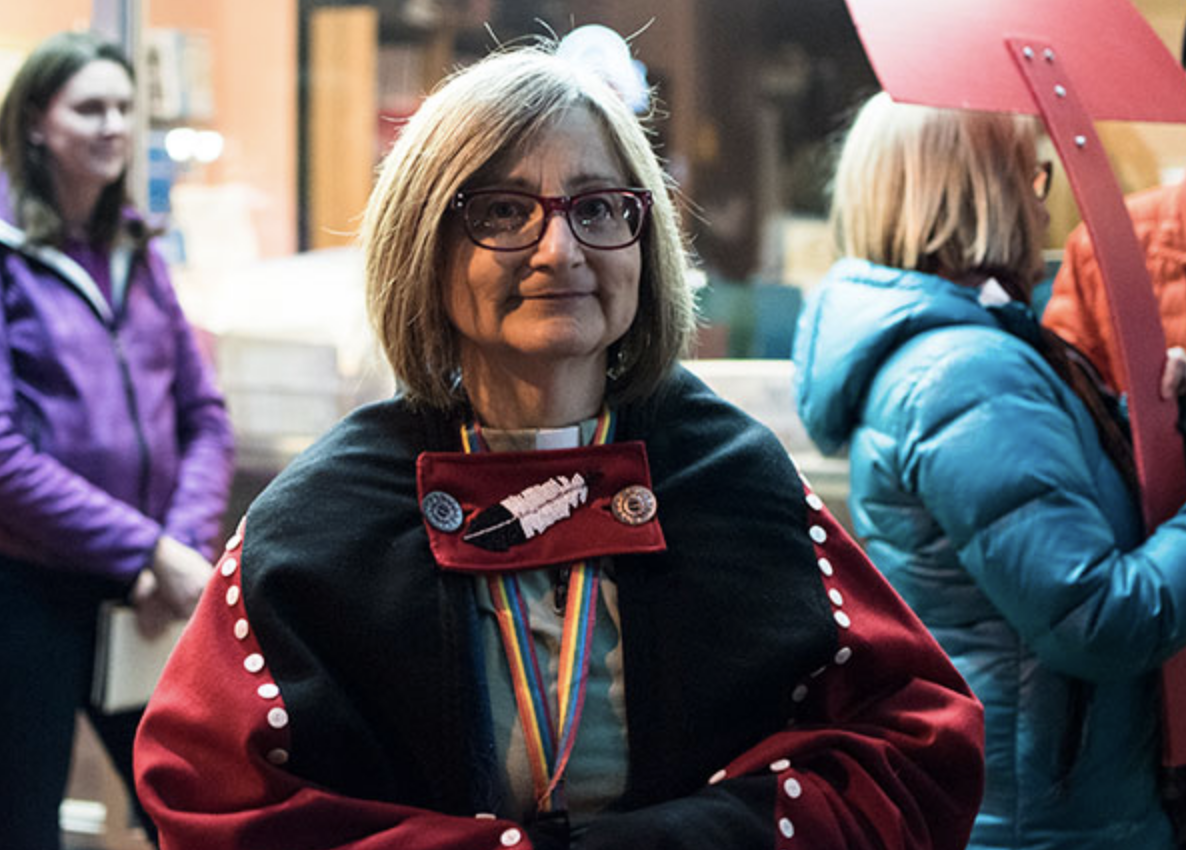Editor’s note: This story contains references to violence in residential schools.
One gift of belonging to a congregation for many years is that you are there for watershed moments. Such a time came for me at Calgary’s Scarboro United in June 2017, when the minister, Rev. Lee Spice, shared some important family history that overlapped with the national church’s focus on right relations with Indigenous communities.
Spice spoke in her usual articulate, compassionate manner about her late father, Peter LeBarge, a residential school survivor. He was “the quietest, gentlest man,” she said, and only in the few years before had she and her siblings begun to piece together some of what he suffered at Chooutla School in Carcross, Yukon.
From the pulpit, she told us of the time her sister spoke with another man who attended Chooutla. He broke down and could not stop weeping.
She and her siblings also learned that the school’s principal had strapped the boys so hard they literally bounced upward and had to be held down.
As I listened to the story, I experienced a slowly unfolding grace. In fact, during her eight years at the church, Spice has helped congregants deeply understand the social and spiritual significance of right relations.
Spice took a similar risk in 2013 when she spoke at the Truth and Reconciliation Commission hearings in Calgary. She did not intend to share her family’s story, but felt moved to do so, she says, in part because her father was never allowed a voice. She began by saying that “listening is the first act of justice,” and went on to reveal that she and her siblings “watched our father be destroyed from the inside out.”
As a biracial woman — she is Tlingit and white — Spice brings a unique perspective to ministry. She says that in the past, she saw right relations as only her concern and didn’t want to “force it on everyone or to be connected to only one issue.” Today, however, “we know this is everybody’s story. That is the sea change that has happened. . . . It is not about me; it is about Canada.”
Wade Wiley-Ross, Scarboro United’s board chair, says that he feels God’s love through Spice and that she inspires people to be better versions of themselves. She enlivens people spiritually, says Norma Wood, chair of the church’s welcoming and support committee. “You have this suspended time with her. She creates a sense of the holy.”
The church is the home of the Women’s Talking Stick Healing Circle, which is a chance for Indigenous and non-Indigenous women to share stories, learn from each other and take steps toward living in right relation. A men’s circle will soon be offered. Last fall, Scarboro also marked 10 years as an Affirming congregation. For a decade, it has hosted Calgary’s annual march for the remembrance of murdered and missing Indigenous women.
Spice, now part time at Scarboro in a shared ministry with Rev. Erin Klassen, sees her work as “keeper of the vision. I hold that up and remind people of . . . the overall vision of serving, of following Jesus, loving people, serving God.”
In her closing statement to the TRC, Spice addressed her position as an Indigenous person and a member of a church that must face its responsibility for running residential schools: “The time for walking side by side is now. Let there be no more silence. Let there be respectful listening,” she said. “Let us walk together in peace and harmony. It is what our Creator calls us to do.”
This story first appeared in The United Church Observer’s January 2019 edition with the title “Keeper of the vision.”















